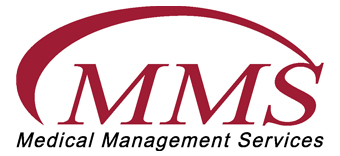Emotional Intelligence (EQ) has been a topic of conversation since Daniel Goleman introduced and popularized the concept in his best-selling book in 1995. But how does empathy apply in the context of caring for the patient in the room?
What is emotional intelligence or EQ?
Emotional intelligence (otherwise known as emotional quotient or EQ) is the ability to understand, use, and manage your own emotions in positive ways to relieve stress, communicate effectively, empathize with others, overcome challenges and defuse conflict. Emotional intelligence helps you build stronger relationships, succeed at school and work, and achieve your career and personal goals. It can also help you to connect with your feelings, turn intention into action, and make informed decisions about what matters most to you.
Emotional intelligence is commonly defined by four attributes:
1. Self-management – You’re able to control impulsive feelings and behaviors, manage your emotions in healthy ways, take initiative, follow through on commitments, and adapt to changing circumstances.
2. Self-awareness – You recognize your own emotions and how they affect your thoughts and behavior. You know your strengths and weaknesses and have self-confidence.
3. Social awareness – You have empathy. You can understand the emotions, needs, and concerns of other people, pick up on emotional cues, feel comfortable socially, and recognize the power dynamics in a group or organization.
4. Relationship management – You know how to develop and maintain good relationships, communicate clearly, inspire and influence others, work well in a team, and manage conflict.
Emotional intelligence helps you build stronger relationships, succeed at school and work, and achieve your career and personal goals.
How EQ Manifests in the Healthcare Environment
Emotional intelligence is experienced in different scenarios within a hospital or medical practice. Medical professionals know firsthand the daily stresses of their jobs. The stress has been exacerbated during the COVID-19 Pandemic. During stressful events, it is common for emotions can run high. For instance, you can see it in the exchanges between the staff and the patients. For example, it is apparent when difficult news needs to be delivered to patients and their families. To achieve the goal of providing excellent care, a medical team has to maintain their emotions under control. Doctors, nurses, anesthesiologists, and lab technicians must regularly cope with the stress of their jobs. This is critical to avoid making mistakes. Mastering EQ is needed as they juggle all their responsibilities and strive to avoid burnout.
Emotional Intelligence and Patient Outcomes
According to research, EQ is one of the things that separate the most successful medical organizations from the rest. Good emotional intelligence can have several positive effects on the physician-patient relationship. The two can work together better towards rapid recovery. The goal is for doctors to look for creative solutions and for patients to follow the direction given to them.
When this is achieved there is greater empathy among all parties. They exercise more patience and understanding because they can understand the problems that the people around them are experiencing. When people are kind to each other, an environment where the stress is lessened is achievable.
The value of effective communication is also understood. Higher EQ ensures more communication and ensures that all parties are on the same page throughout the treatment process.
Discuss the obstacles you are facing quickly to find a solution. As a result, doctors, nurses, and patients have a better outcome. This better outcome is a result of the medical team increasing their individual and collective EQ. In turn this often helps the patient and their caregivers.
Efforts to Improve EQ Among Healthcare Professionals
Emotional intelligence is not a fixed trait. Even those who have trouble with their emotions can learn to improve control with proper training. It just takes willingness on the part of the individual to get better at it. Organizations should also extend assistance to their staff, nurses, and physicians to get improvements across the board. Training sessions can be conducted to enhance patient care.
The team has to come to understand paying attention to others doesn’t diminish your own self-awareness. By investing the time and effort to really pay attention to others, you’ll actually gain insight into your own emotional state as well as your values and beliefs. For example, if you feel discomfort hearing others express certain views, you’ll have learned something important about yourself.
In closing, working well with others is not a one-time event, it is a process that begins with emotional awareness. Once emotional awareness is in play, you can effectively develop additional social/emotional skills that will make your relationships more effective, fruitful, and fulfilling.
MMS is comprised of a team of certified and enthusiastic professionals…
with over 30 years of experience in the medical billing industry, information technology, and business consulting.
Our leadership team has served many anesthesia groups, pain management groups, hospitals, group clinics and even solo practices over the past 34 years.
Contact Us and let’s get started.
Call Mark Manning directly at 706.315.4660.







